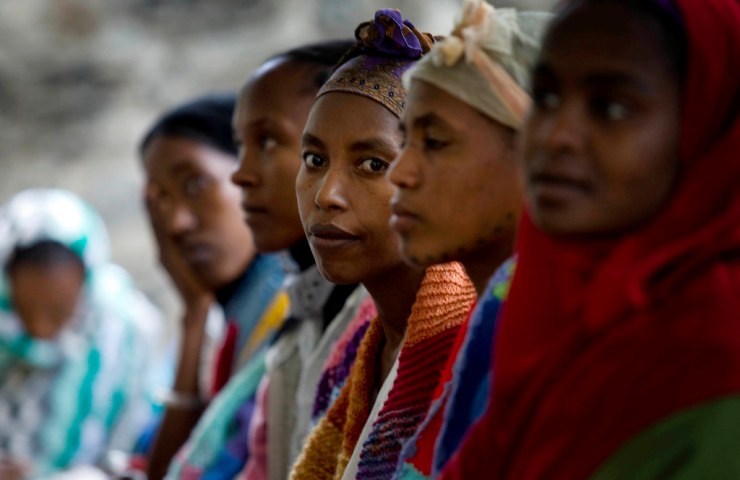AfDB signs $650,000 grant to provide digital services to women and youth in Chad
In Chad, banking services are largely inaccessible outside urban areas; only 7% of Chadians have access to financial services and thus resort to the informal system or loan sharks.

The Africa Digital Financial Inclusion Facility (ADFI) of the African Development Bank has signed a grant agreement for $650,000 with the Government of Chad to provide innovative digital financial and non-financial services to women and youth.
The funding will advance the Microfinance Development Support Project for Women and Youth Entrepreneurship, which seeks to bolster women's economic empowerment and youth entrepreneurship in rural Chad. The project has three components: improve the supply of microfinance services and develop digital finance; boost demand for financial services; and strengthen the entrepreneurial ecosystem in rural Chad.
The funding support from the Africa Digital Financial Inclusion facility (ADFI), which is also providing technical assistance, as well as oversight from the Human Capital Skills and Youth Development Department and the Affirmative Finance Action for Women in Africa (AFAWA) initiative, aims to support increased financial inclusion and job creation opportunities by not only building the capacity of microfinance institutions to develop new digital financial services for excluded women and youth, but also through the first FinScope study to assess the supply and demand of financial services in Chad. Co-funding of roughly $12.8 million comes from the African Development Bank’s Transition Facility Fund, with the Bank’s Affirmative Finance Action for Women in Africa initiative contributing 673,500.
Ali Lamine Zeine, African Development Bank Country Manager for Chad, said: “At the African Development Bank, we recognize that we have a major role to play in supporting innovative technology that can increase access and use of digital financial solutions and spur entrepreneurship, particularly among excluded and underserved groups.” He added, “This initiative contributes to the delivery of our High 5 strategic priorities by seeking to build a robust and sustainable microfinance sector in Chad, with the potential to leapfrog barriers to inclusive digital financial solutions, accelerating economic resilience, reducing poverty and stimulating growth.”
In Chad, banking services are largely inaccessible outside urban areas; only 7% of Chadians have access to financial services and thus resort to the informal system or loan sharks. Despite the implementation of the Government of Chad’s National Financial Inclusion Strategy (2019-2024), Most of the 115 registered microfinance institutions in the country continue to face enormous difficulty in meeting the needs of marginalized groups, particularly small businesses, owing to a lack of infrastructure, capacity and reliable technological solutions.
The African Development Bank, together with its partners, launched the Africa Digital Financial Inclusion Facility to make catalytic investments in support of innovative ideas and to use blended financing to promote impactful scale. By working in partnership with the Bank’s regional member countries and offices to mainstream digital financial solutions across their operations, ADFI seeks to support initiatives with the potential to make a significant contribution to building resilience, mitigating risk and strengthening economic empowerment.
“Ensuring that vulnerable groups have adequate access to financial and non-financial services is instrumental in bridging the gender gap and creating economic opportunity for financially excluded groups, especially for women and youth who bear the brunt of such disparities,” said Sheila Okiro, ADFI Coordinator.










